
As we age, our nutritional needs evolve. Therefore, it is crucial to adapt our diets to maintain health and vitality. Today, we’re shedding light on foods that, while they may have been staples in younger years, nutritionists now recommend seniors should avoid. However, this guide is not just a list. It could be a pathway to better health, enhanced well-being, and a fuller understanding of how the right food choices can significantly impact our later years.
14 Foods Seniors Should Avoid for Better Health
1. High-Sodium Processed Foods
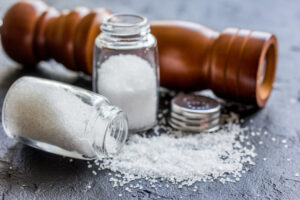
Processed foods packed with sodium are a significant health risk for seniors. High-sodium diets can lead to increased blood pressure as well as increased risk for heart disease and stroke. Nutritionists advise opting for fresh, whole foods to keep sodium intake in check.
2. Sugary Beverages

Sugar-sweetened drinks contribute to weight gain, type 2 diabetes, and dental problems. They have also been linked to increased risk of frailty among older women. Water, herbal teas, and other low-sugar options are healthier alternatives that can help maintain hydration and overall health.
3. White Bread and Refined Grains
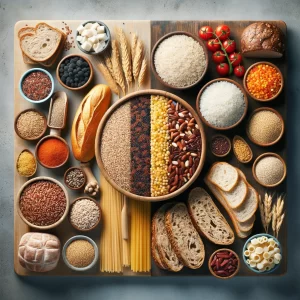
Refined grains, like white bread, lack the nutrients and fiber in whole grains. Switching to whole-grain options can improve digestive health and reduce the risk of chronic diseases such as diabetes, cardiovascular disease, and certain types of cancer.
4. High-Fat Dairy Products
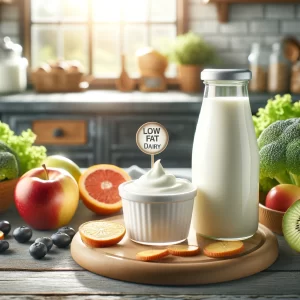
Dairy products are a vital source of calcium, potassium, and other vitamins that keep your body strong, especially as you age. But, choosing full-fat dairy products can contribute to cholesterol, heart disease, and digestive issues for seniors. It has also been linked to higher risks of dementia and lower survival rates for breast and prostate cancer. Low-fat or fat-free dairy options provide the same essential nutrients without the added risks.
5. Fried and Fast Foods
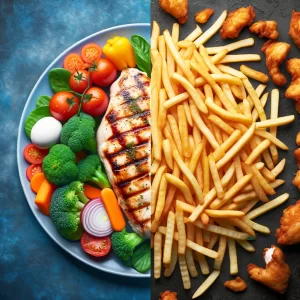
Fried foods are not only high in unhealthy fats but also in calories, contributing to obesity, heart disease, type 2 diabetes, and stroke. Therefore, many nutritionists recommend that seniors avoid these foods, or at least severely limit their intake. Baked or grilled foods are much healthier alternatives and promote better overall health.
6. Alcohol

While limited intake has shown some positive health benefits, many nutritionists advise that seniors should avoid excessive alcohol consumption. It can lead to a range of health issues, including liver damage, stroke, an increased risk of falls, and a host of mental health issues. Moderation is key. However, seeking non-alcoholic beverages can be a wise choice at any age.
7. High-Sugar Snacks

Several studies have shown the negative impacts of sugar consumption on short-term and long-term health. In addition to the higher risk for chronic inflammation, obesity, diabetes, heart disease, and cancer, it also contributes to premature aging. Snacks high in sugar can also lead to energy spikes followed by crashes, further impacting overall health. Opting for snacks rich in fiber and protein can help maintain energy levels throughout the day.
8. Caffeinated Beverages

Many people rely on caffeine to get through the day. However, it can cause serious issues for seniors with heart issues since it increases heart rate. It can also lead to several digestive and gastrointestinal problems. Furthermore, it can affect sleep patterns and lead to dehydration. Seniors are encouraged to limit their caffeine intake, especially later in the day, to ensure better health, sleep, and hydration.
9. Red and Processed Meats
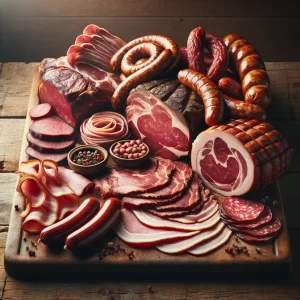
Although many people debate the choice to consume red and processed meat, there have been many studies linking them to negative health outcomes. These meats are associated with increased risks of heart disease, certain cancers, and premature death. Lean meats, fish, and plant-based protein sources are recommended for a healthier diet.
10. Artificial Sweeteners
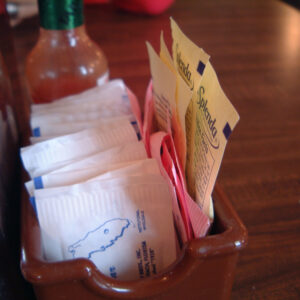
While they may seem like a good alternative to sugar, artificial sweeteners are not always the solution. For example, they can have negative effects on metabolism and gut health. Additionally, they can turn a healthy diet into one that lacks nutrients and cause you to drink less water. Natural sweeteners in moderation, or focusing on naturally sweet foods, is a better route.
11. Heavy Creams and Sauces

Although we have already discussed the health risks of consuming high-fat dairy products, nutritionists often specify that seniors should avoid heavy creams and sauces. These can add unnecessary calories and fats to meals. Opting for lighter, vegetable-based sauces and dressings can enhance flavor without the added health risks.
12. Canned Vegetables with Added Sodium
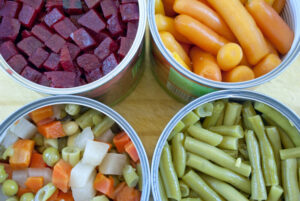
Canned vegetables can be a convenient source of nutrients and an easy dinner solution. However, those with added sodium can contribute to high blood pressure which can result in many other health complications. Nutritionists say that these are foods seniors should avoid and recommend looking for “no salt added” labels or using fresh vegetables to reduce these risks.
13. Store-Bought Baked Goods

The negatives of a sugary diet have already been well-covered. However, store-bought goods are even worse than homemade items. These often contain trans fats and high levels of sugar, contributing to heart disease and diabetes. If you need to satisfy your sweet tooth, homemade baked goods with controlled ingredients are a healthier alternative.
14. Energy Drinks

Energy drinks can be particularly harmful for seniors, leading to increased heart rate and blood pressure. They can be incredibly dangerous if you have a preexisting heart condition and can increase the risk of stroke and other serious health events. Staying hydrated with water and natural fruit juices is a safer choice.
Maintaining a Healthy and Balanced Diet
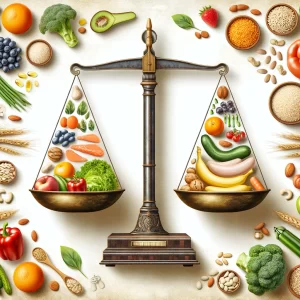
As we navigate the golden years, making mindful food choices can significantly impact our health and quality of life. Remember, it’s not about restricting joy in eating but rather finding healthier ways to enjoy it. If you’re unsure where to start, consider consulting a nutritionist to tailor a diet that fits your needs and preferences. Here’s to a healthier, happier you!
Read More
- Think Before You Eat: Beware:12 Seafoods That Are Riskier Than You Think
- Beat Inflation and Stay Healthy With These 7 Low Calorie Fast Foods
Come back to what you love! Dollardig.com is the most reliable cash-back site on the web. Just sign up, click, shop, and get full cashback!



